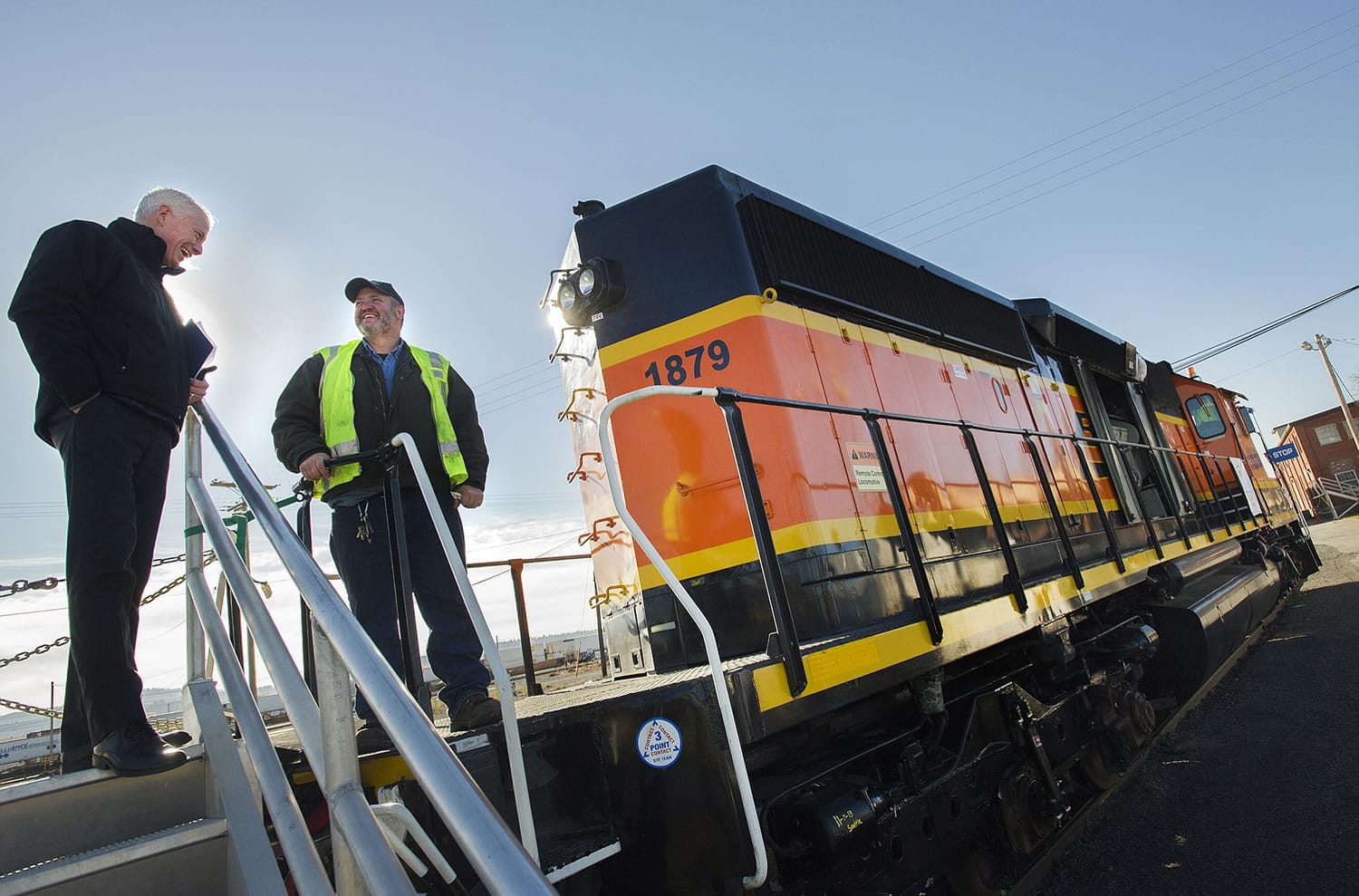SPOKANE (AP) — A longtime Spokane company is helping BNSF Railway keep its yard locomotives warm when they are not in use, saving fuel in the process.
Hotstart Inc. has sold auxiliary power units for 11 diesel locomotives used for switching duty in Spokane and Pasco.
The two-cylinder engines consume about a half gallon of fuel per hour compared with the four to five gallons that a locomotive consumes while idling. Auxiliary units give off fewer pollutants as well.
The units are intended for cold months so that locomotives can be kept warm without idling. The Hotstart units provide warm water and warm oil constantly, preventing damage to the engine and reducing wear and maintenance costs.
It is estimated that the installations will save 60,000 gallons of fuel during the region’s six months of cold weather.
“The emissions profile of that small engine is cleaner than the locomotive,” said Mike Stanfill, BNSF director of sustainability.
Most of the railroad’s locomotive fleet is already equipped with automated start and stop systems that allow locomotives to be shut down when not in use. Those systems will restart an engine if the temperature drops, but the start-stop capability is not adequate for cold weather, officials said.
The Hotstart units keep the engine’s water temperature at 100 to 120 degrees Fahrenheit and its oil at 80 to 100 degrees.
The switch engines selected for the installations are the railroad’s older, less powerful models that can be operated by a conductor using remote control from the ground.
BNSF officials said they are purchasing the units for locomotives that work solely in cold-weather climates.
The units were installed by a maintenance crew from Pend Oreille Valley Railroad, where the units have been used since they first became available in 1998.
Hotstart is adjacent to BNSF’s rail yard at Parkwater.
Terry Judge, CEO of Hotstart, said savings from the units can pay for the installations in six months to two years.
Hotstart, which has been in business since 1942, sells its products internationally, with a subsidiary in Germany and sales offices in Texas and Tokyo. The company has 210 employees.
The technology is being applied to numerous industrial applications. Judge said the company is considering the possibility of developing units for large mining trucks used to haul ore.
BNSF promotes rail shipping as a more environmentally friendly choice compared with truck freight. The railroad can move a ton of freight nearly 500 miles on a gallon of fuel, which is about three times more efficient than trucking. In addition, rail transport does not crowd highways.
The railroad is taking advantage of other energy technology through the purchase of newer locomotives over the past decade. Locomotives are now equipped with energy management systems, and engineers are rewarded for their ability to effectively use those systems. Container shipments are loaded with wide-span electric cranes in Seattle; Memphis, Tenn.; and Kansas City, Kan.
BNSF is testing locomotives powered with liquefied natural gas.
“We are always looking at new technologies,” said Courtney Wallace, BNSF spokeswoman.



